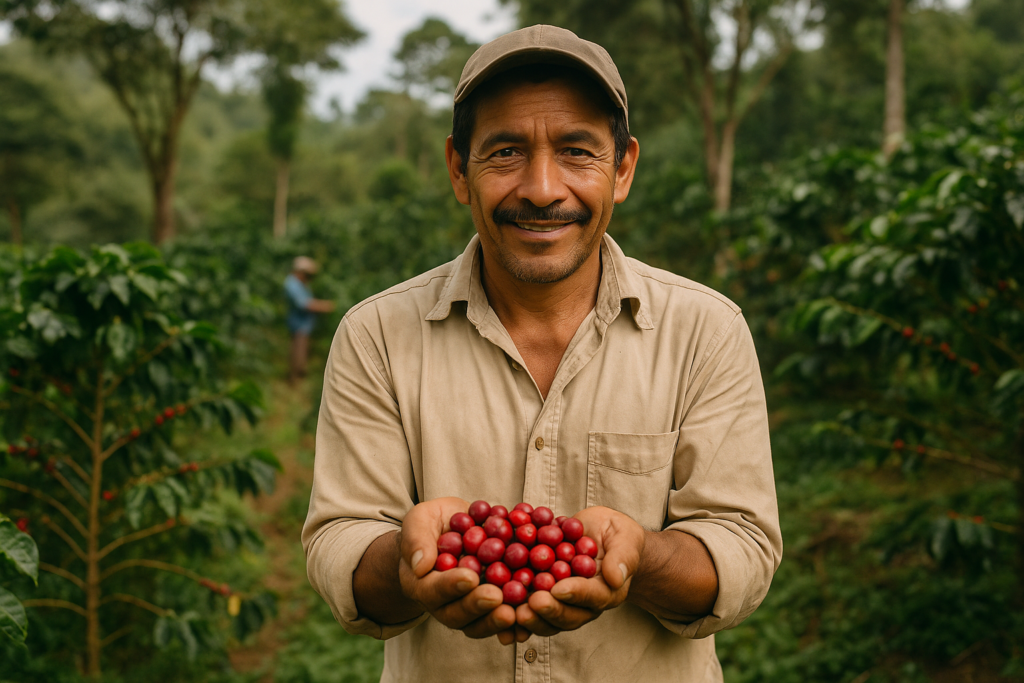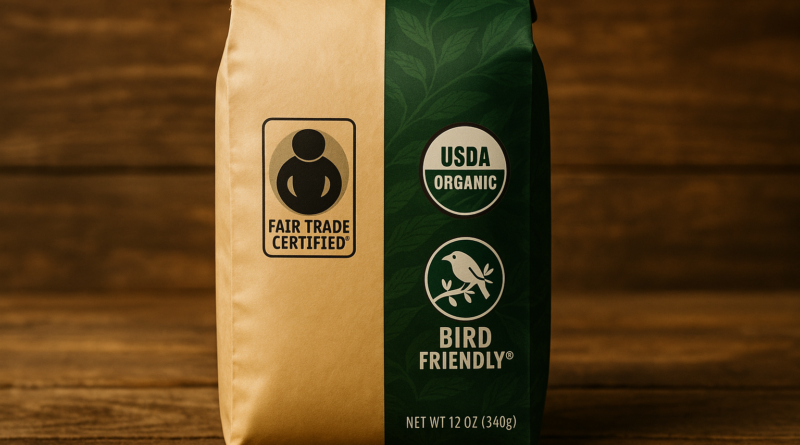Ethical vs Sustainable Coffee: What’s the Real Difference and Why It Matters
Why We Need to Talk About the Difference
Coffee packaging today is full of feel-good phrases—“ethically sourced”, “sustainably grown”, “responsibly harvested.” But while these terms are often used together, they don’t mean the same thing.
Ethical coffee is about people: fair wages, dignified labor conditions, and long-term relationships that support farming communities. Sustainable coffee is about the planet: soil health, clean water, biodiversity, and a stable climate. These goals sometimes align—but not always. Knowing the difference helps us go beyond marketing language. It encourages more mindful decisions that support lasting change in both human lives and ecosystems.
What Ethical Coffee Really Means
Ethical coffee puts people at the center. That includes everyone from the smallholder farmer who tends the crop to the seasonal worker who picks the cherries. At its best, ethical sourcing means farmers are paid fairly, labor rights are respected, and communities benefit directly from the value coffee creates.
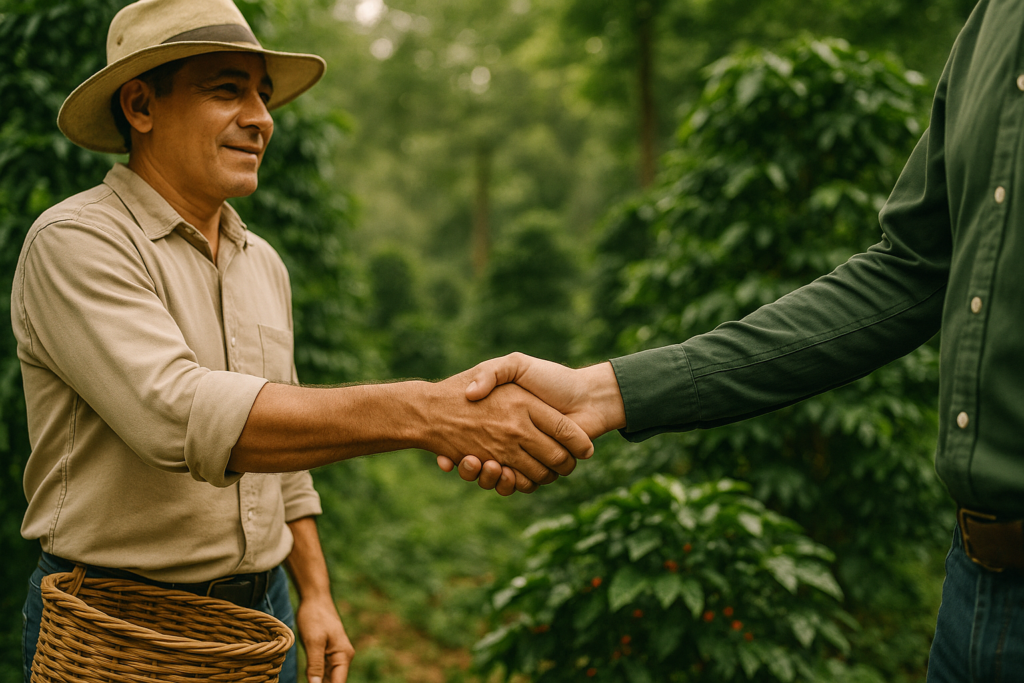
One of the most well-known frameworks for this is Fair Trade. It guarantees a minimum price to farmers, adds a social premium for community investment, and supports democratic decision-making at the cooperative level. Direct Trade follows a different path—less formal but highly transparent. It focuses on direct, long-term relationships between roasters and growers, often with above-market pricing and shared quality goals.
This approach to trade can have a transformative effect on farming communities. By offering price stability and recognizing the value of labor and craft, ethical sourcing helps protect not only livelihoods but also local cultures that are closely tied to coffee cultivation. In regions where climate change and market volatility are already creating enormous pressure, these protections can be the difference between sustainability and abandonment.
Still, ethical doesn’t always mean green. A farm might pay workers fairly but still use chemicals that harm waterways or clear forests to increase output. And that’s where sustainability steps in.
Why Sustainable Coffee Alone Isn’t Enough
If ethical coffee puts people first, sustainable coffee puts the planet at the center. It looks at a different set of questions. It asks: Are we protecting the soil? Are we preserving local water sources? Are we maintaining biodiversity and reducing carbon emissions? These are long-term concerns—not just about today’s crop, but whether farming can continue in ten or twenty years.
Sustainable farming practices vary. Some growers eliminate synthetic pesticides. Others invest in shade-grown methods that support wildlife and help sequester carbon. Certifications like Organic, Rainforest Alliance, and Bird Friendly® set different benchmarks, but they all aim to reduce environmental harm and encourage farming that works with natural systems.
And yet, sustainability alone doesn’t ensure fair treatment of people. A farm may pass environmental audits but still rely on temporary labor, pay low wages, or fail to offer any kind of social support. That’s why it’s not enough to ask whether a coffee is sustainable or ethical—the real question is whether it’s both.
When the two don’t align, we end up with half a solution. Coffee that’s fair but environmentally destructive still contributes to climate stress. Coffee that’s green but unjust keeps inequality in place. True progress means looking at the whole picture.
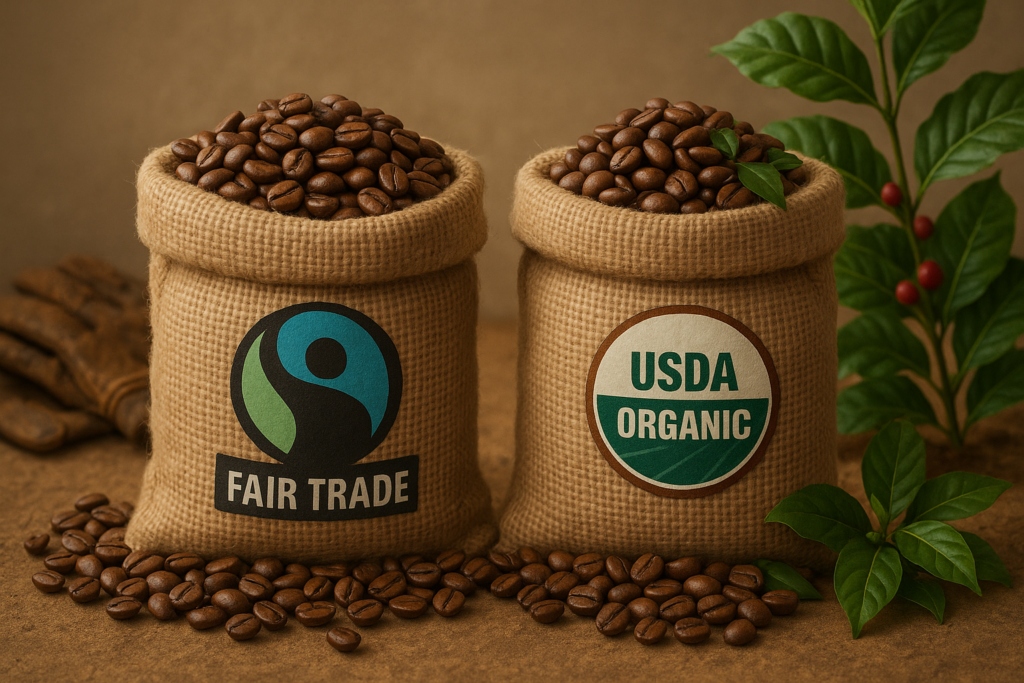
The best coffee systems in the world today are those that are beginning to blend both approaches—investing in soil and people, protecting both forests and futures. It’s not just about growing coffee differently. It’s about changing how we value it.
How to Choose Coffee That Supports Both People and Planet
If you want your coffee to reflect both ethical and sustainable values, start by looking for transparency. Brands that are doing the work usually tell you how. They name the co-ops they work with, describe how the coffee is grown, and explain what impact they’re aiming for—both socially and environmentally.Certifications can also help. Fair Trade is a strong marker of social responsibility. Organic or Bird Friendly® labels focus more on environmental impact. When you see both on the same package, it’s a good sign that a coffee is checking multiple boxes. You can explore more about what makes shade-grown coffee environmentally valuable in our dedicated article here.
But no label tells the whole story. What matters is whether a company is clear about where their coffee comes from, who grows it, and how it’s farmed. The more open they are, the more likely they’re serious about their claims.
Choosing better coffee isn’t about being perfect. It’s about being intentional. And when you choose beans that support both people and the planet, you’re helping move the entire coffee industry in the right direction—one cup at a time.
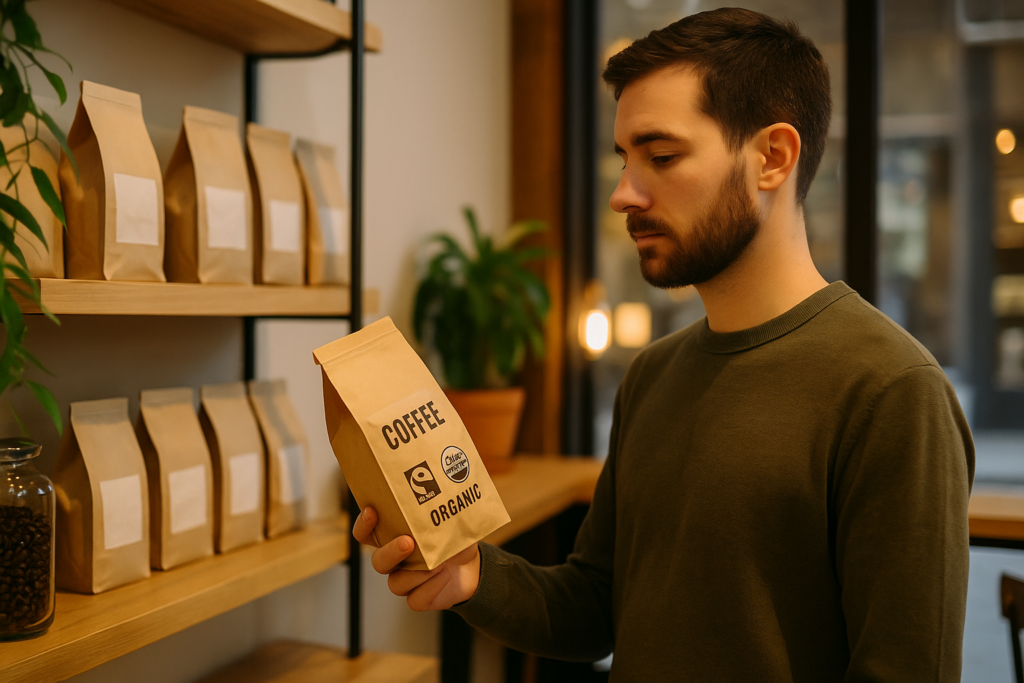
The Bottom Line: Better Coffee Is Possible
Ethical and sustainable aren’t buzzwords—they’re two sides of a system that can either exploit or uplift. When they come together, coffee becomes more than a commodity. It becomes a force for change.
Every bag you choose is a small decision. But collectively, these choices shape how coffee is grown, traded, and valued around the world. That’s why it matters to understand the difference. Because when your coffee supports both people and planet, you’re not just drinking better. You’re building something better too.
In a world where climate stress, economic pressure, and supply chain inequality are growing realities, coffee can seem like a small detail. But it’s a daily habit with global impact. If enough of us choose coffee that supports farmers and protects nature, it sends a powerful signal: that taste, fairness, and sustainability can exist in the same cup.
